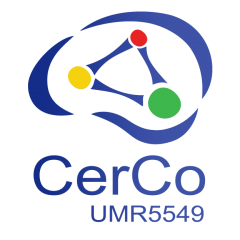S!C: Information Technology and Communication Service
Presentation
The missions of the S!C (Information Technology and Communication Service) include both support and assistance in scientific projects as well as more general operational missions.
In the context of support and assistance to scientific projects, the S!C plays a role of support close to researchers. It participates in the development of software solutions, and also provides training in the use of Matlab, Python, and Shell. The S!C also offers specific training for the use of the HPC cluster to support users in their intensive computing tasks. The service also creates specific devices intended for experiments with measurement and signal control operations.
Regarding general missions, the S!C ensures the implementation of IT and network equipment, and also ensures the application of security policies. The service is responsible for the administration of data servers and application servers. In the context of GDPR, in connection with the CNRS legal service, the IT service contributed to the development of a reference document (AIPD), guaranteeing compliance of data processing in scientific projects involving individuals. The S!C also provides advice on the choice and use of individual IT equipment. It manages a heterogeneous IT fleet, including machines running Windows, MacOS, and Linux. It is also responsible for managing scientific bibliography in HAL, maintaining the unit’s websites, and administering information displays intended for internal communication. Finally, the service ensures the security of information systems and implements and manages VPN access for users.
In 2023, the growing share of AI in the scientific projects of the NeuroAI and SV3M teams led the service to acquire an evolutive HPC cluster. Internal training sessions are organized for users to facilitate the configuration and optimization of local GPU computing, upstream of processing carried out on regional and national computing centers, such as Calmip and Jean Zay.
It is very likely that AI work will continue to grow in the coming years, and computing nodes will need to be added. In this context, the service will need to raise awareness and guide users toward digital sobriety in the use of high-performance computing through the development of efficient algorithms and the reduction of data when it is redundant or obsolete.
Like the other exploration techniques that CerCo uses, the future MEG will most likely require the S!C to provide technical and IT support for the use of this new scientific equipment.
Since IT services and information systems are closely linked, the S!C integrates communication and valorization of the unit’s work.
